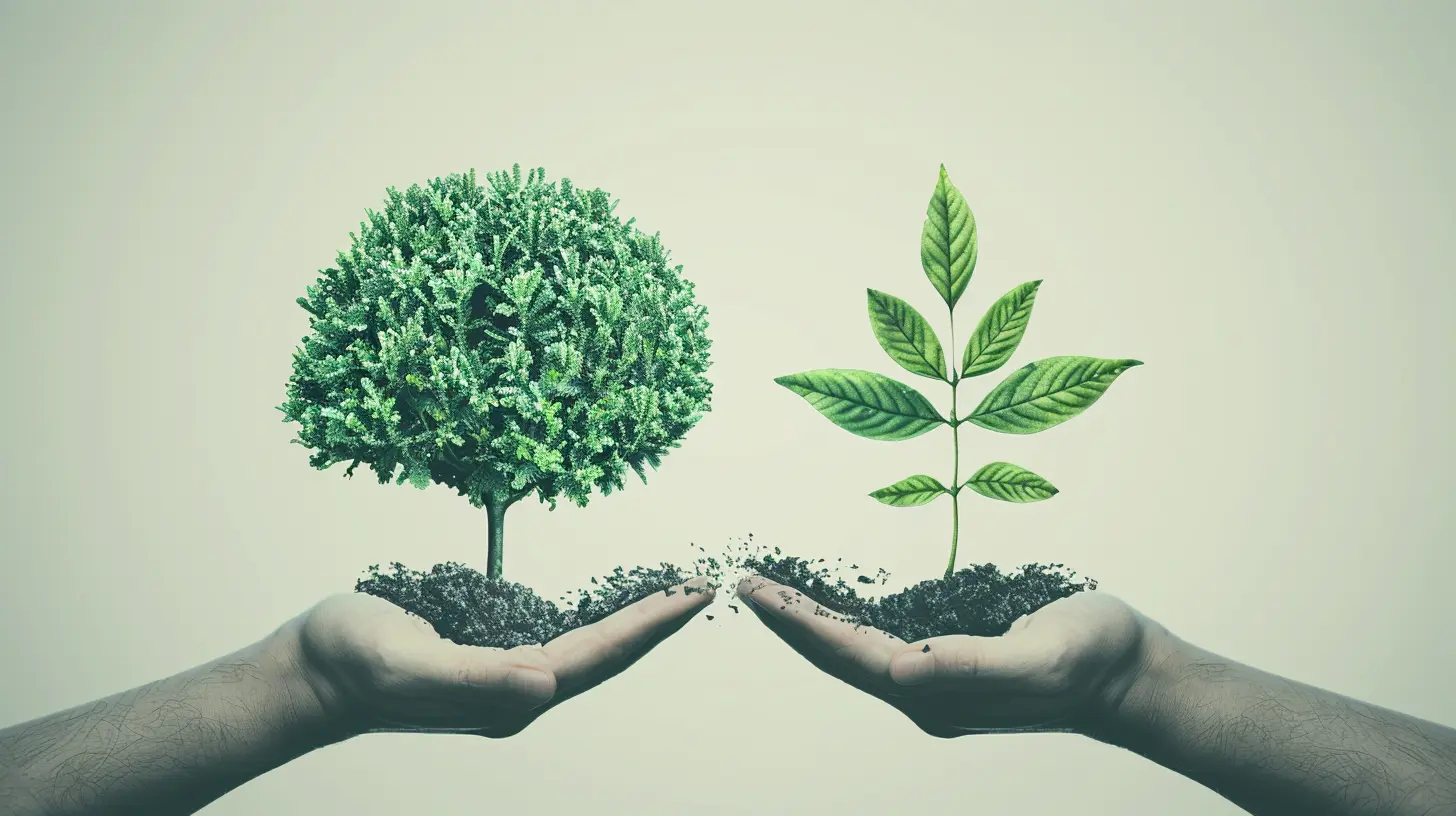Greenwashing vs. Genuine CSR: How to Tell the Difference
12 October 2025
Sustainability is the new buzzword. From global brands to scrappy startups, everyone’s bragging about their “green” values. But here’s the million-dollar question—how do you know if a business actually cares about the planet… or if they’re just slapping a green label on their products to make a quick buck?
Welcome to the messy world of greenwashing vs. genuine CSR (Corporate Social Responsibility). Let’s pull back the curtain and find out who’s walking the talk—and who’s just talking the talk.
What the Heck Is Greenwashing, Anyway?
Let’s not sugarcoat it—greenwashing is corporate BS dressed in a biodegradable package.Imagine this: A company puts a leafy logo on its packaging, flashes words like “eco-friendly” or “natural” in huge font, and suddenly they’re the Mother Teresa of the environment. But when you dig deeper, their supply chain is pumping out emissions, their workers are underpaid, and their “recyclable” packaging often ends up in landfills.
Greenwashing is when a brand pretends to be environmentally or socially conscious, but it’s all show and no substance. It’s marketing smoke and mirrors.
CSR: The Real Deal 🌍
Now, let’s talk about genuine CSR—the good stuff.CSR, or Corporate Social Responsibility, is when a company takes actual responsibility for its impact on society and the environment. It’s not just about planting a tree for every product sold or using less plastic in shipping. Genuine CSR digs deeper. It’s about:
- Ethical supply chains
- Fair wages and safe working conditions
- Reducing carbon footprints in meaningful ways
- Supporting communities instead of exploiting them
- Transparency at every level
In short, it’s about putting people and the planet before profits—or better yet, finding a way where all three can thrive together.
Greenwashing vs. Genuine CSR: Why Does the Difference Matter?
Sure, all companies need to make money. But if you’re supporting a greenwashed brand, you’re essentially voting with your wallet for more BS. And if you’re a business owner trying to make a difference, getting lumped in with the fakes can hurt your credibility.The difference between greenwashing and real CSR isn't just semantics—it shapes consumer trust, investor interest, and planet-saving action.
7 Signs You're Being Greenwashed
Brands that greenwash are often slick. They know all the right words, use all the right colors, and design logos that look like they were born in a forest. But don’t be fooled. Here are the red flags:1. Vague Buzzwords Galore
If a product screams “natural,” “green,” “eco-friendly,” or “clean” but doesn’t explain how, you’re probably looking at good old-fashioned greenwashing. These words are often completely unregulated and meaningless unless backed by facts.2. No Evidence or Transparency
Is the company willing to break down its sustainability practices? Can you find real reports, data, or third-party certifications? If the answer is no, that’s a huge red flag.3. One “Green” Product Amid a Sea of Waste
A classic move: launching one eco-product to distract from the rest of a dirty portfolio. It’s like throwing a recyclable coffee cup into an ocean of plastic.4. Using Nature Imagery as a Distraction
Leaves, trees, serene rivers—greenwashing brands LOVE some nature-themed packaging. It makes something toxic look wholesome. Don't fall for the aesthetics.5. Overemphasis on Offsets Instead of Action
Carbon offsets are cool—but paying someone to plant trees while your operations continue polluting is like cheating on a diet and adding a side salad.6. Outdated or Shady Certifications
Not all certifications are created equal. Some are legit, others are basically bought and paid for. Watch out if the company is flaunting obscure or old badges without links to what they actually mean.7. Hypocrisy in Practices
A fast fashion brand bragging about using organic cotton in one t-shirt line, while paying sweatshop wages for the rest? That’s not CSR. That’s a PR stunt.So, What Does Real CSR Look Like?
Let’s flip the script. How can you spot a company that’s actually doing the work?1. Radical Transparency
They’ll tell you the good, the bad, and the ugly. Real CSR isn’t perfect. But honest companies will openly share where they’re succeeding—and where they still need to grow.2. Third-Party Certifications (That Actually Matter)
Think B Corporation, Fair Trade, Cradle to Cradle, or FSC Certified. These aren’t just pretty stickers; they require real audits, accountability, and criteria.3. Impact Reports with Real Data
Numbers don’t lie. Legit CSR-focused companies publish annual sustainability reports packed with metrics—emissions reduced, water saved, communities helped. And they don’t sugarcoat it.4. Ethical Sourcing and Supply Chain Verification
They know where their materials come from. They pay fairly. They inspect factories. If your T-shirt costs $2, someone down the line got exploited. Real CSR brands avoid that.5. Purpose Built Into the Business Model
Ever heard of Patagonia or Ben & Jerry’s? Purpose is baked into everything they do. For these companies, CSR isn’t a campaign; it’s the foundation.6. Employee-Centric Culture
Great CSR isn’t just external. Companies practicing what they preach treat their employees like humans, not cogs in a machine. Think fair wages, good benefits, and inclusive policies.7. Long-Term Commitment, Not Just Trendy Campaigns
Genuine CSR isn’t a phase—it’s a long game. If a company’s green talk fades when the trend does, it was never serious.The Business Case for Getting CSR Right
Let’s get real: CSR isn’t just “nice to have” anymore. It’s a brand essential.Did you know that:
- 73% of Millennials are willing to pay more for sustainable products
- 88% of consumers want brands to help them be more environmentally friendly
- Investors are prioritizing ESG (Environmental, Social & Governance) like never before
Translation? Businesses that get CSR right build trust, loyalty, and long-term growth.
Greenwashing, on the other hand, is like lying on your dating profile. Sure, you might get attention at first—but when the truth comes out? Boom. Reputation ruined.
How Businesses Can Avoid Greenwashing
If you’re a business owner reading this, here’s how you can stay on the right side of sustainability history:1. Don’t Oversell
Stick to what you’re actually doing. Be honest. Your audience is smart—they’ll sniff out the BS.2. Invest Internally Before You Broadcast Externally
Fix your supply chain. Treat your people right. Reduce waste. THEN talk about it.3. Educate, Don’t Just Sell
Host webinars, write blogs (like this one!), share behind-the-scenes. Help people understand the real issues—not just your brand.4. Bring in the Experts
Work with sustainability consultants, nonprofits, and certification bodies. You don’t have to go it alone.How Consumers Can Spot the Good Guys
Want to make smarter choices with your dollars? Here’s how to separate the wheat from the chaff:- Ask questions: Email the brand, slide into their DMs. A legit company will reply transparently.
- Look up certifications: Not all are made equal. Dig into the credibility of what you see on the label.
- Read the fine print: Is that “recyclable” packaging only recyclable in rare facilities? Is the “green” product shipped 5,000 miles by air?
- Support small brands doing it right: Often, indie businesses are killing the sustainability game without the budget to shout about it.
Bottom Line: Real CSR Isn’t Sexy, But It’s Authentic
Greenwashing is like fast food—it looks tempting, but it’s mostly empty calories.Genuine CSR? It’s like home-cooked food. It takes longer, it’s made with intention, and it actually nourishes something bigger than your appetite.
As we move toward a more conscious economy, both businesses and consumers have a responsibility. We can’t afford to fall for shallow green marketing anymore. The planet’s future isn’t a branding opportunity—it’s a responsibility.
So next time you see a brand throwing around words like “green” or “eco,” pause. Look closer. Ask tougher questions. Because the best things in life aren’t marketed—they’re lived.
all images in this post were generated using AI tools
Category:
Corporate Social ResponsibilityAuthor:

Ian Stone
Discussion
rate this article
1 comments
Verity Hardy
Greenwashing is the ultimate betrayal of consumer trust. Businesses must rise above superficial eco-promises and embrace authentic Corporate Social Responsibility. Genuine commitment to sustainability goes beyond marketing buzzwords—it's about real impact. Don't be fooled by pretty packaging; demand transparency and accountability from companies that claim to care about the planet.
October 15, 2025 at 3:54 AM

Ian Stone
Thank you for your insightful comment! You’re absolutely right—genuine CSR requires transparency and real impact, not just marketing hype. It's crucial for consumers to hold companies accountable to foster true sustainability.


